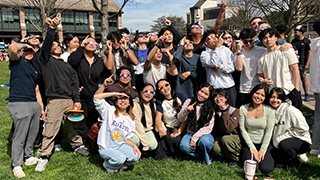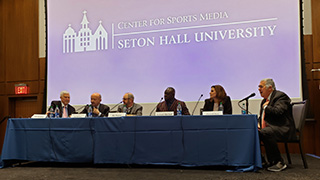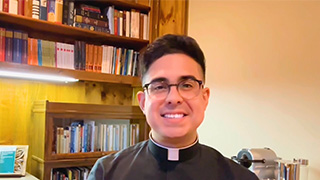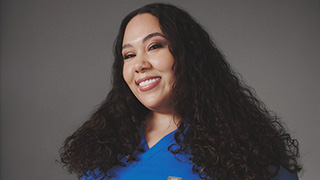Service in El Salvador, a Pilgrimage of DOVEs
Thursday, May 2, 2019
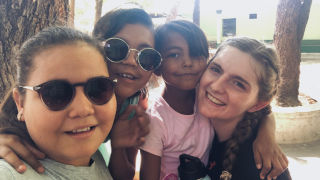
This year marked the 15th year that the Division of Volunteer Efforts (DOVE) has trekked to El Salvador, giving students the opportunity to experience a ministry of presence within the small but densely populated Central American country that is still, in some ways, recovering from the civil war that ended in 1992.
Michelle Peterson, director of DOVE, reflected "In our 15 years of travelling to El Salvador, we have seen great improvements and less poverty. It is truly gratifying to see the progress and the changes being implemented throughout the years – though there is still a great deal left to do."
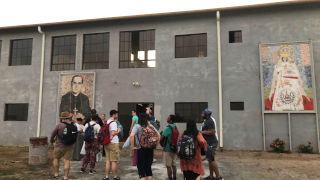
Although pleased with the progress, Peterson cautioned that the DOVE service trips
weren't just a means to "do a good deed, check a box and move on."
Peterson explained that the goal of these trips is for students "to be present in the lives" of the people of El Salvador and to learn and grow from that experience. In fact, although nominally a Service Trip, in many ways the journey is more akin to a pilgrimage, calling students to immerse themselves in the lives of others and with each other in community.
To that end, students take lodging for the week within the homes of local residents and spend time getting to know people who are struggling with poverty, in nursing homes, daycare facilities and orphanages.
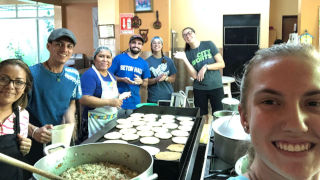
The Costs of War and Faith, the Prospect of Healing and Renewal
In the first few days of the journey in El Salvador, students visited the memorial
at El Mozote, the site of the worst massacre in modern Latin American history. They
also travelled to the home of Saint Oscar Romero, a Catholic priest who spoke out
against poverty, social injustice, torture and assassination. Romero served as Archbishop
of San Salvador up until 1980 – when he himself was assassinated while celebrating
Mass in the chapel of the Hospital of Divine Providence. At the hospital, students
celebrated mass within the chapel and then met and spoke with patients, many of whom
were being treated for cancer.
After spending these first three days focused on the costs of war and faith along with the prospect of healing and renewal, the students were given their volunteer "assignments" and split into two groups: one to San Miguel and one to Santa Tecla.
Sometimes a Volcano…
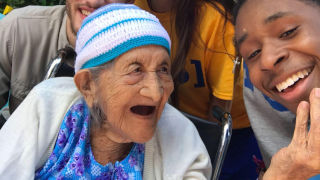
"It all just kind of fell in to place," said Peterson. "We stayed with family and friends and got to know a whole new community. The next year, when the air in San Miguel had sufficiently recovered for us to return, we couldn't turn our backs on our new friends in Santa Tecla – we had just begun to lay the groundwork to have an impact there – so we started going to San Miguel and Santa Tecla each year." She paused, "Funny how things work out sometimes. Our mission in Santa Tecla has borne fruit in so many ways for so many people. And if it weren’t for that volcano…."
'Assignments'
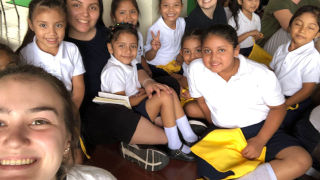
"It is important for us not to assume the needs of the community before we arrive," said Peterson. "Our goal is to go, meet people, allow the relationships and community to sink in, and also to remain aware so that we can help if a need arises."
Community
At the end of each day of service, the students gather and reconvene with the group
to talk about their experiences. Often, faculty and administrators (many of whom have
been coming to El Salvador each year for more than a decade) are able to provide context
for students; because the groups are each accompanied and guided by a priest, these
conversations often move toward the spiritual ramifications of the day's events; immersed
in the lives of others, without social media and other external distractions, students
tend to bond, offering each other guidance, solace and a sense of community.
"This experience is often the first intentional community outside of their families that these students have ever been a part of; we focus on the importance of having compassion for one another throughout our shared experience. Being there for others is crucial in a world where loneliness and anxiety are an epidemic among college students— and feeling a part of a community is hugely important for students."
When asked what she had learned from the trip, and what her biggest takeaway was, Annabella Pastorok, a Seton Hall student who assisted in a daycare center in Santa Tecla, didn't hesitate:
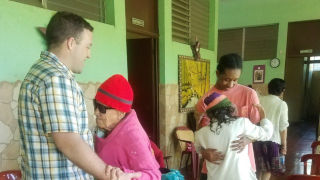
To Do
Although the emphasis is upon taking part in a ministry of presence, and no "quick
fixes" are offered, after returning from the trip in years past many students have
started fundraising initiatives to meet various needs they saw within the communities
they served. They have raised money to provide parts for a school bus that was broken
down (with the parts the nuns fixed the bus up, then sold it and used the profit to
buy a new and better bus); money to fund a psychological center to provide mental
health counseling for aid in the aftermath of the ravages of war; a water filtration
system; kitchen cabinet doors that close effectively to keep rodents out of the orphan's
food; and washing machines for the nursing home, which had each day been doing the
laundry of 200 residents by hand.
Impact
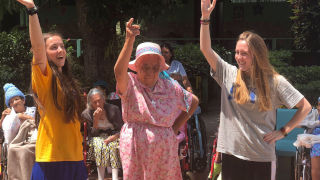
Annabella Pastorok's experience was, in many ways, characteristic of DOVE journeys throughout the years. "Before this trip I would not say that I was religious. I always claimed I am agnostic, but I started asking Father Dan (another one of the servant leaders on the trip) some hard-hitting questions about religion and it started a great conversation that was much needed for me. I loved this trip because religion was not forced down my throat like it has been in the past, and it made me really enjoy praying and going to mass. Since I have returned, I have been more active in the church community, but I still am not 100% sure of my beliefs and that's okay, I'll get there eventually," sad Pastorok.
Before next year's return to El Salvador, DOVE has Service Trips scheduled for Philadelphia, West Virginia and Haiti.

